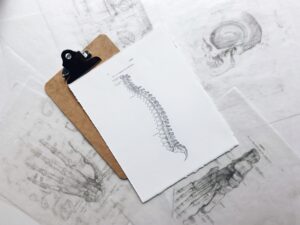At first, you might think that there is no such thing as the perfect pillow. With so many types and brands of pillows on the market today, it can be hard to decide which one will work best for you. But as it turns out, there are a few things to keep in mind when shopping for a new pillow that will help make your decision much easier:
The first thing to consider is firmness. There are different firmness levels and thicknesses of foam available, but if you’re looking for an all-around good choice, then go with medium-firm or firmer. The next thing to look at is material – natural materials like cotton are always preferable because they breathe more easily than synthetic materials. However, if you’re not a fan of cotton, then don’t worry.
The third thing to consider is filling material – there are several different types available on the market today that have their unique benefits. The most common fill materials are feather, foam, memory foam, and gel-infused fiberfill. Feather pillows provide great support for your neck but tend to be very light, so they’ll flatten quickly over time as you sleep on them more often than other types of fillers would. Memory foam fills offer excellent moldability, which means they will sink around your head and neck perfectly no matter how much weight or pressure you apply during sleeping, making sure you get a comfortable night’s rest every single time without any risk of pain or discomfort.
Finally, gel-infused fiberfill pillows are a great middle-ground between feather and memory foam because they offer support without sinking too much or flattening out as you sleep on them often over time like that of the feather pillow would. It also provides the perfect amount of moldability as memory foam does.
Yes, your pillow can be one of the causes of neck pain. An excellent way to check if it is causing you some discomfort would be by placing a second pillow under your head and see how that feels in comparison with just using one – most people will feel much more comfortable when two pillows are used compared to having only one underneath their heads. If this proves true, then there’s no doubt about it; whatever type or brand of pillow you’re currently sleeping on isn’t giving you proper support for the weight of your head, which means it could be contributing to any existing health condition like chronic back pain or arthritis in addition to general muscle stiffness & soreness every morning as you wake up.
How should I sleep to avoid neck pain:
- Use two pillows if necessary.
- Keep your spine in a neutral position, not bent forward or backward. This means keeping the natural curve of your neck intact with no compression on it when you sleep. If this proves difficult, then use some thin pillow to support the back of your head and keep that area aligned with its corresponding vertebrae while you’re sleeping at night – most people will have an easier time falling asleep using this method instead because they’ll wake up without any tension or pain in their necks due to their spines being straightened out naturally during slumber. Hence, nothing is pushing down on the cervical discs, which can cause damage over time if pressure is applied for hours every day before waking up again.
- Keep your shoulders down and back instead of letting them creep up to your ears while you sleep on your side. This will help prevent neck pain by keeping the vertebrae in line with each other at all times – meaning there won’t be any misalignment or compression that can cause problems later on, especially for those who are already experiencing some injury or condition related to their necks nowadays which makes it even more important to pay attention to these details when sleeping every night, so they don’t get worse over time as healing progresses slowly if at all.
If possible, try using a body pillow between both legs before turning onto your back because this position is best for avoiding muscle spasms around the hips & lower back which can cause pain to radiate throughout the spine and neck down into both shoulders if they’re not properly supported or aligned naturally.
A special note for those who sleep on their stomachs: this position puts a lot of pressure on your cervical discs because it forces your head forward. At the same time, you’re asleep, so try using a thin pillow under just your forehead instead before turning onto either side, as that will prevent any problems from occurring during slumber hours.
If nothing else seems to work, then consider adding some soft wedge-shaped cushion underneath your legs when sleeping at night so there’s less strain placed upon them due to gravity pulling downward constantly – this is especially important with pregnancy. Contact us today at 205-637-1363 with any questions or to get started.







